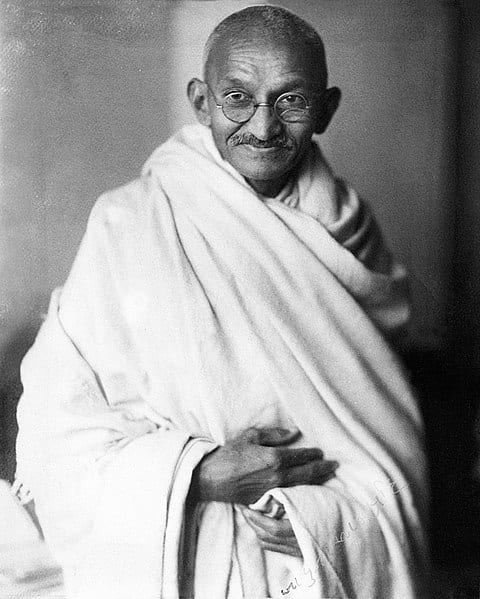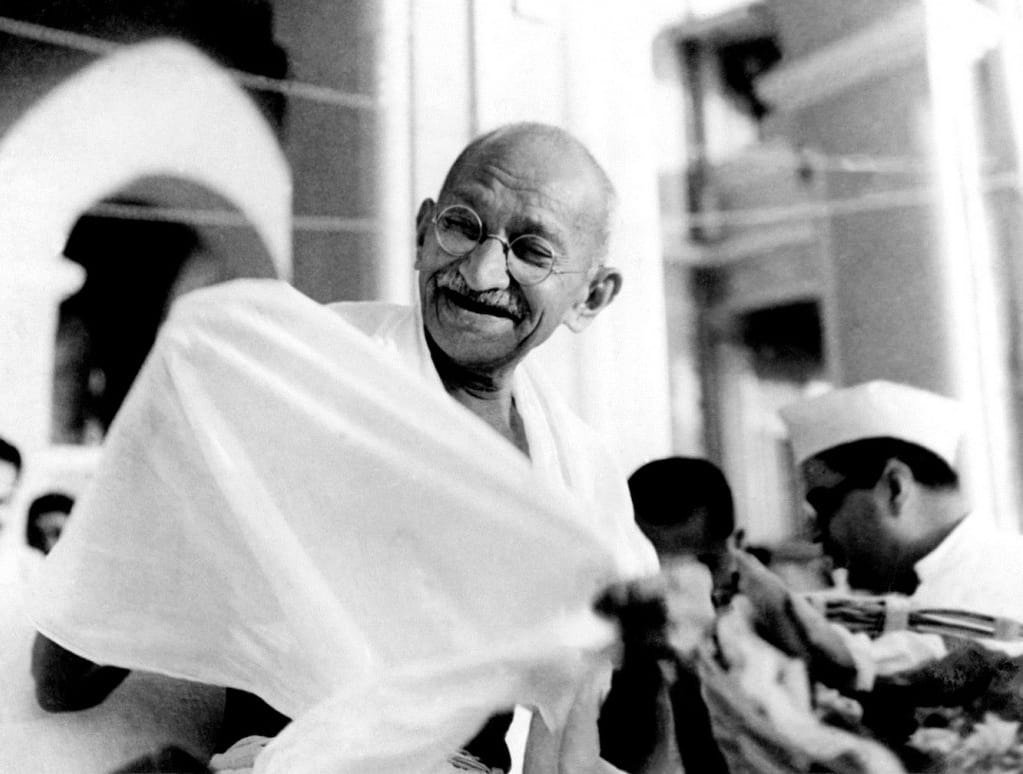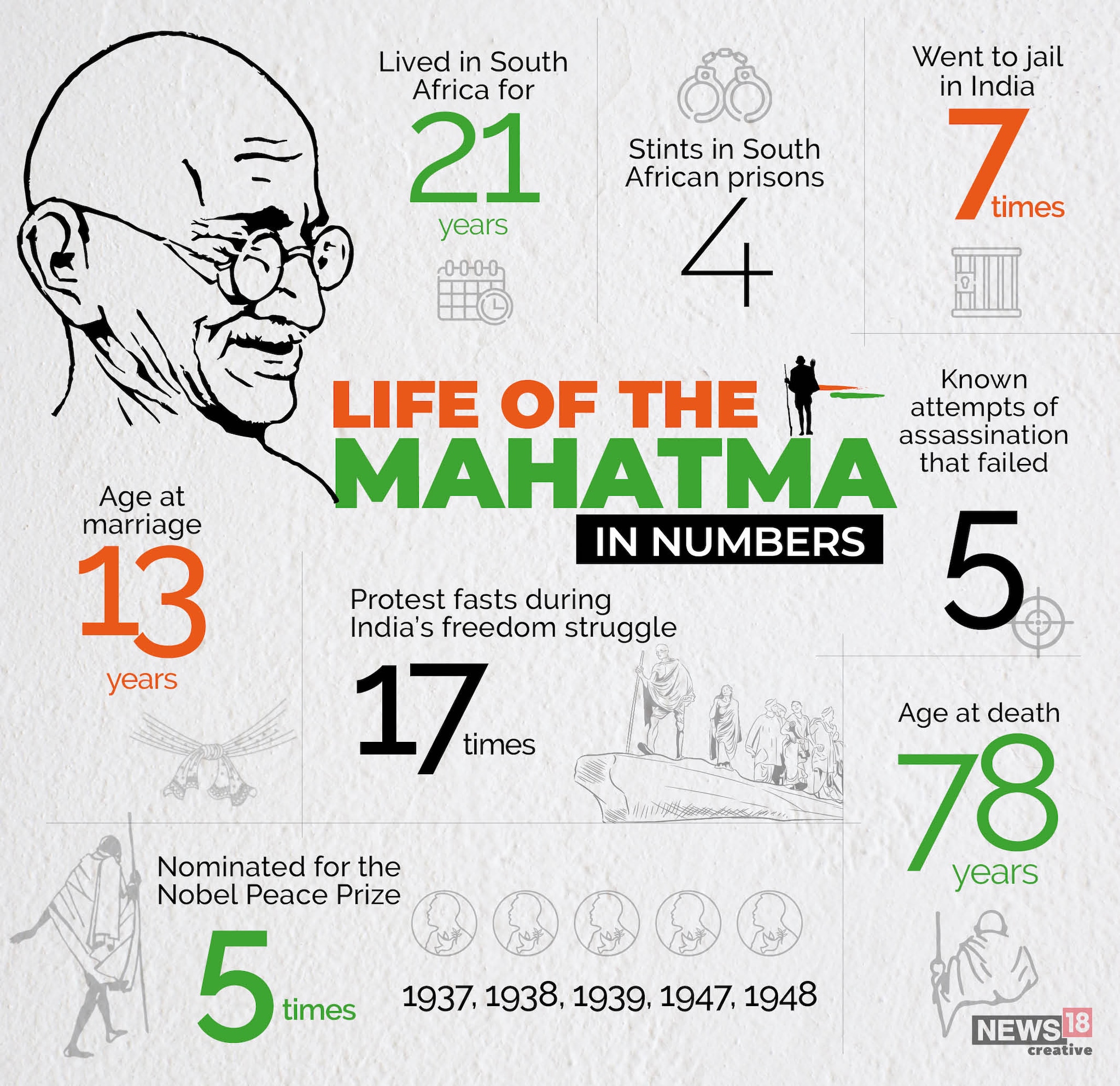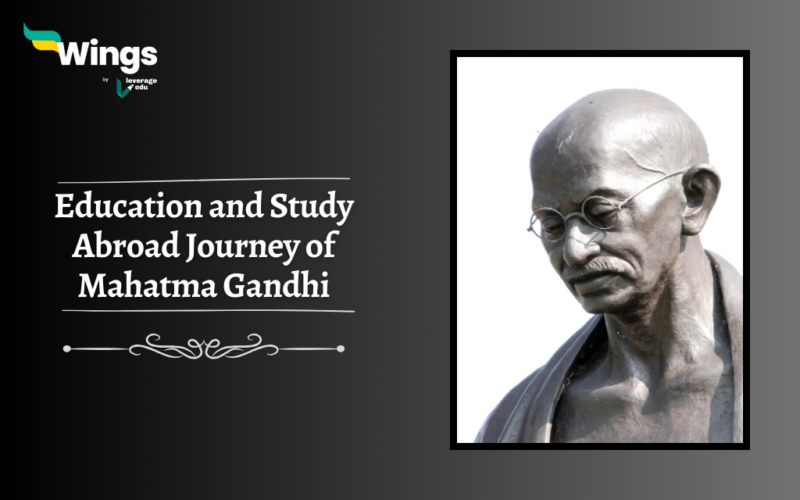There is no one in India who is revered as much as Mahatma Gandhi. Some call him Mahatma, ‘Great Soul’ and to some, he is known as Bapu. Mahatma Gandhi was the leader who emancipated India from the shackles of British colonialism that were inflicted on the Indian masses for over 200 years. A globally-renowned figure, Mahatma Gandhi is known for his non-violent, highly intellectual, and reformist ideologies. Considered among the great personalities, the stature of Gandhi in Indian society is unmatched as he is regarded as the ‘Father of Nation’ for his painstaking efforts at leading the freedom struggle of India. In this blog, we will shed some light on the education of Mahatma Gandhi.
This Blog Includes:
“The weak can never forgive. Forgiveness is the attribute of the strong.”
Education of Mahatma Gandhi

Born on October 2, 1869, in Porbandar, India, Mahatma Gandhi’s real name was Mohandas Karamchand Gandhi. Right from an early age, Gandhi was neither brilliant in class nor any better on the playing ground. No one at that time would have guessed that the boy would unite millions in the country and enlighten millions more around the world. The education of Mahatma Gandhi played a significant role in making him one of the greatest people in the world. He attended a primary school at Porbandar where he won prizes and scholarships but his approach to studies was an ordinary one. In 1887, Gandhi passed his matriculation exams at the University of Bombay and joined Samaldas College in Bhavnagar.
Also Read: Non-Cooperation Movement: Features, Causes and Results
Sojourn in London & Finding His Career Forte
Gandhiji wanted to become a doctor but his father insisted that he become a barrister. At that time, England was the hub of knowledge, so he had to leave Samaldas College, where he was not too happy, in pursuit of his father’s dream. Despite his mother’s insistence and his lack of resources, he was adamant about visiting England. Finally, in September 1888, he sailed to the land of Englishmen, where he joined Inner Temple, one of the four London law colleges. He also took the matriculation exam in 1890 at the University of London.
During his time in London, he took his studies seriously and also joined a public speaking practise group which helped him overcome his shyness sufficiently to practise law. Gandhi had always been a person who had the zeal to help the impoverished and marginalised people. In a resentful conflict in London, a few dockers went on strike demanding better pay and conditions. Gandhiji mediated the condition to the prelate of the church which helped the strikers in successfully gaining their demands.
Another significant instance in London included his missionary work for vegetarianism. Gandhiji became a member of the executive committee of the London Vegetarian Society and also attended various conferences and contributed articles to its journal. During his visits to vegetarian restaurants in England, Gandhi met notable Socialists, Fabians and Theosophists such as Edward Carpenter, George Bernard Shaw, and Annie Besant.

Activism in South Africa
After returning to India from England for a brief period of time, Gandhi voyaged to South Africa to be the lawyer for Abdullah’s cousin- a successful shipping businessman in South Africa. On arrival in South Africa, Gandhiji was exposed to the harsh reality of the country which included racial discrimination. He went through a brutal ordeal which included instances where he was asked to take off his turban, unceremoniously thrown out of a first-class railway compartment and left shivering at the rail station, and was also beaten up by the white driver of a stagecoach because he would not travel on the footboard to make room for a European passenger.
“I see the time drawing nearer everyday when no one, whether black or white, will succeed in obtaining a hearing by merely making petitions. If I am right, then no force in the world can compare with soul force, that is to say, satyagraha. I, therefore, wish that Indians should fill the gaols if, by the time this letter is published, there has been no decision or solution.” – Gandhi, for his journal of August 28, 1909
After suffering these humiliations, Gandhiji planned to leave the country after concluding the Abdullah case. However, he had to prolong his stay to oppose a Natal government discriminatory bill that denied Indians the right to vote, a right then proposed to be an exclusive European right. Even though Gandhiji was unable to stop the bill, his support helped him to draw attention towards the grievances of Indians in South Africa. In 1894, he also founded the Natal Indian Congress.
In the next few years, Gandhi actively stood up for the Indians in South Africa during the outbreak of the Boer War in 1899. He went on to raise an ambulance corps of 1,100 volunteers, out of whom 300 were free Indians and the rest indentured labourers. Despite resisting for over 7 years, the hardships of Indians didn’t stop. After a humiliating ordinance for the registration of the Indian population, Gandhi took a pledge to defy the ordinance and suffer any consequence of their revolt. Hence, this gave rise to “Satyagraha”- nonviolent resistance or civil resistance.
Apart from standing up with the Indians, Gandhiji also advocated for the blacks and helped them gain the right to vote in South Africa. Gandhiji had certainly gained a heroic prominence in South Africa which also helped him become a global saint. After years of activism in South Africa, Gandhi returned to India in 1915 along with an international reputation as an Indian Nationalist.
Did you know: Gandhiji had an unappealing relationship with Jan Smuts (then Prime Minister of South Africa) but both men maintained a degree of respect for each other. Before his departure, Gandhi sent General Smuts a pair of sandals as a gift.

“The saint has left our shores, it was my fate to be the antagonist of a man for whom even then I had the highest respect. He never forgot the human background of the situation, never lost his temper or succumbed to hate, and preserved his gentle humour even in the most trying situations. His manner and spirit even then, as well as later, contrasted markedly with the ruthless and brutal forcefulness which is the vogue in our day.” – Smuts wrote to a friend on Gandhi’s departure from South Africa for India, in July 1914.
Gandhi On Education

Mahatma Gandhi realized that education is the most powerful tool that can reshape society and Indian society needed it much. Gandhi’s idea of education was mainly focused on character building, moral values, ethics and free learning. He was among the first to advocate that education should be made free to all and accessible to everyone irrespective of class. Gandhi encouraged craft-centred education in which he encouraged schools to include handicrafts as a compulsory subject in the curriculum. His vision of improving the educational standard of the country by incorporating craft in the syllabus at schools was also to encourage self-sufficiency in the students. He wanted education to become inclusive and lead to the overall development of the students, moreover, he stressed the need for promoting the mother tongue through education.
“An education which does not teach us to discriminate between good and bad, to assimilate the one and eschew the other, is a misnomer.”
Family and Personal Life

Gandhi’s father Karamchand Gandhi served as the chief minister in Porbandar which was then under British control. His mother, Putlibai, a lesser-known figure was a religious woman. Gandhi was certainly a notable figure in Indian history and instrumental in abolishing the social evils prevalent in the community. He was the first to raise his voice against segregation and apartheid. His ideologies were widely accepted at the global level and still continue to influence people to help to make the world a better place. Patron of various movements and reforms, Gandhi is an uncontestable figure in India’s struggle for freedom.

A lawyer, writer, activist and political leader, Mahatma Gandhi’s role in revolutionizing Indian society is highly significant. His philosophy of Ahimsa and Satyagraha was adored by leaders like Martin Luther King Jr and Nelson Mandela.

In 1882 at the age of 13, he married Kasturbai Makanji with whom he had four children. By the time he died in 1948, Gandhi saw his vision materializing when India won independence a year before his death. His legacy in abolishing social evils and steering the Indian struggle for freedom is indelible. The education of Gandhi is a source of inspiration to many who see him as a symbol of truth and determination.

“Non-violence is the greatest force at the disposal of mankind. It is mightier than the mightiest weapon of destruction devised by the ingenuity of man.”
Essential Teachings by Mahatma Gandhi
Must-Read Literary Works by Mahatma Gandhi

- The Story Of My Experiments With Truth
- Hindi Sawaj
- India of My Dreams
- The Essential Gandhi: An Anthology of His Writings on His Life, Work, and Ideas
- Non-Violent Resistance
- Gandhi on Non-Violence
Must Read: Essay on Mahatma Gandhi
The Philosophy of Gandhi
Also Read:
- APJ Abdul Kalam Education
- Education of Rabindranath Tagore
- Education of Kalpana Chawla
- Education of Albert Einstein
Great personalities always inspire us to be a catalyst for change in society. The education of Mahatma Gandhi and his philosophies continue to inspire millions all over the world. We at Leverage Edu honour this incredible world leader who played a key role in India’s independence! It was through Mahatma’s knowledge of India and the Western world he explored studying abroad that he was able to frame his own worldview!
Gandhi started his journey to England just after his father died at the age of 16. His dream was to become a doctor, but his father insisted him to pursue a career in Law. Thus, he studied Law in England and later went on to become one of the best Lawyers.
According to Gandhi basic education means, an education which can develop a skill or craftsmanship in a child’s development process. Through this education, a child will be able to solve the problems of living a life with dignity and simultaneously have good qualities as a citizen.
Gandhi went to London, England in the year 1888 to pursue his career in Law and later on travelled to South Africa to practice as a barrister in the year 1893. Again by 1917, he moved back to India and practised his degree.
He was a mediocre student. In his book, he mentions getting a report card mentioning that he is good in English, fair in Arithmetic and weak in geography. He accepts that he neither was good in the classroom nor was a good sportsperson.
That’s all about the Education of Mahatma Gandhi! If you want to read more articles like this, you can get Study notes on the Modern History of India here. Also, you can visit our general knowledge page on Indian History!
-
Ok that’s good

 One app for all your study abroad needs
One app for all your study abroad needs




















 25,000+ students realised their study abroad dream with us. Take the first step today.
25,000+ students realised their study abroad dream with us. Take the first step today.


1 comment
Ok that’s good